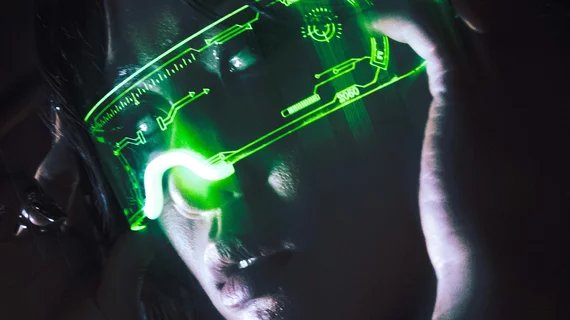Industry Watcher’s Digest
Buzzworthy developments of the past few days.
- Baptist Health is applying value-based care principles to AI integration. Meanwhile Geisinger is getting more patient-focused time with help from AI. And Henry Ford Health is using AI for adaptive radiotherapy for cancer care. These are just three of seven health systems held up as role models by the American Medical Association this week. What all seven have in common is membership in an AMA enterprise-solutions program and, evidently, a knack for making AI pop. Get the rest.
- Does your health system have an AI-friendly culture? If not, don’t be surprised when AI fails to catch on across the enterprise. Gallup encourages taking stock by asking reflective questions like, “Is our workforce optimistic about the impact of AI on individual, team and organizational performance?” And “Do we have enough agility to adapt our vision as we adopt ever-more AI tools and applications?” Read it all.
- U.K. healthcare is not ready for generative AI. So states a professor of safety science at the University of York in a piece published by The Conversation. “Healthcare could benefit tremendously from the adoption of GenAI and other AI tools,” writes computer scientist Mark Sujan, PhD. “But before these technologies can be used in healthcare more broadly, safety assurance and regulation will need to become more responsive to developments in where and how these technologies are used.” Hear him out.
- The VA is throwing in with the FDA to launch a cross-agency AI testing facility. Called HAIL for Health AI Laboratory, the work will use a virtual lab environment. The plan is to assist not only government agencies but also private parties as they develop medical AI models for veterans and, indeed, all patients. The VA’s undersecretary for health, Shereef Elnahal, MD, MBA, announced the news last week. The FDA “saw our potential to do this work,” he said, “and they are selecting us as their main clinical partner in assessing the adherence to trustworthy AI principles for anyone who wants to test their interventions.”
- Watch for President-elect Donald Trump to waste little time before pushing the U.S. to regain clear AI preeminence. He may not even wait to move back into the White House before issuing the call. “Under a [second] Trump Administration, we would expect major AI initiatives within the U.S. government including the Department of Defense that would also be a major tailwind (for) AI players,” says securities analyst Daniel Ives, as reported by Investor’s Business Daily. “We would expect significant AI initiatives from the Beltway within the U.S. that would be a benefit for Microsoft, Amazon, Google and other tech players.”
- How do Islamic teachings approach the use of AI in healthcare? That may be a question not many in the U.S. are asking. But it’s important to consider, isn’t it? Muslims number 1.8 billion, making them more than 25% of the global population. “In order to make this encounter as ethical as possible, we put more responsibility on the powerful, that’s the physician, and more protection for the vulnerable, that’s the patient,” biomedical ethicist Mohammed Ghaly of Hamad Bin Khalifa University in Qatar tells Wired. “This is based on a basic assumption that is increasingly being disrupted and challenged by AI.”
- As it happens, that take aligns rather nicely with Pope Francis’s views on the subject. “Technology is born for a purpose and, in its impact on human society, always represents a form of order in social relationships and a disposition of power, which enables someone to take action and prevents others from doing so,” the leader of the world’s 1.3 billion Catholics said this past summer.
- Recent research in the news:
- University of Florida: Scientists trained AI to detect faces in pain—in goats
- University of Virginia: AI-powered system detects toxic gases with speed and precision
- University of Florida: Scientists trained AI to detect faces in pain—in goats
- Funding news of note:
- From AIin.Healthcare’s news partners:
- Health Imaging: Deep learning reconstruction cuts prostate MRI acquisition time
- Radiology Business: Radiology AI vendor Volpara Health inks $7M Department of Defense contract
- Health Imaging: AI model spots up to 30% of breast cancers missed on MRI
- Health Imaging: Deep learning reconstruction cuts prostate MRI acquisition time

